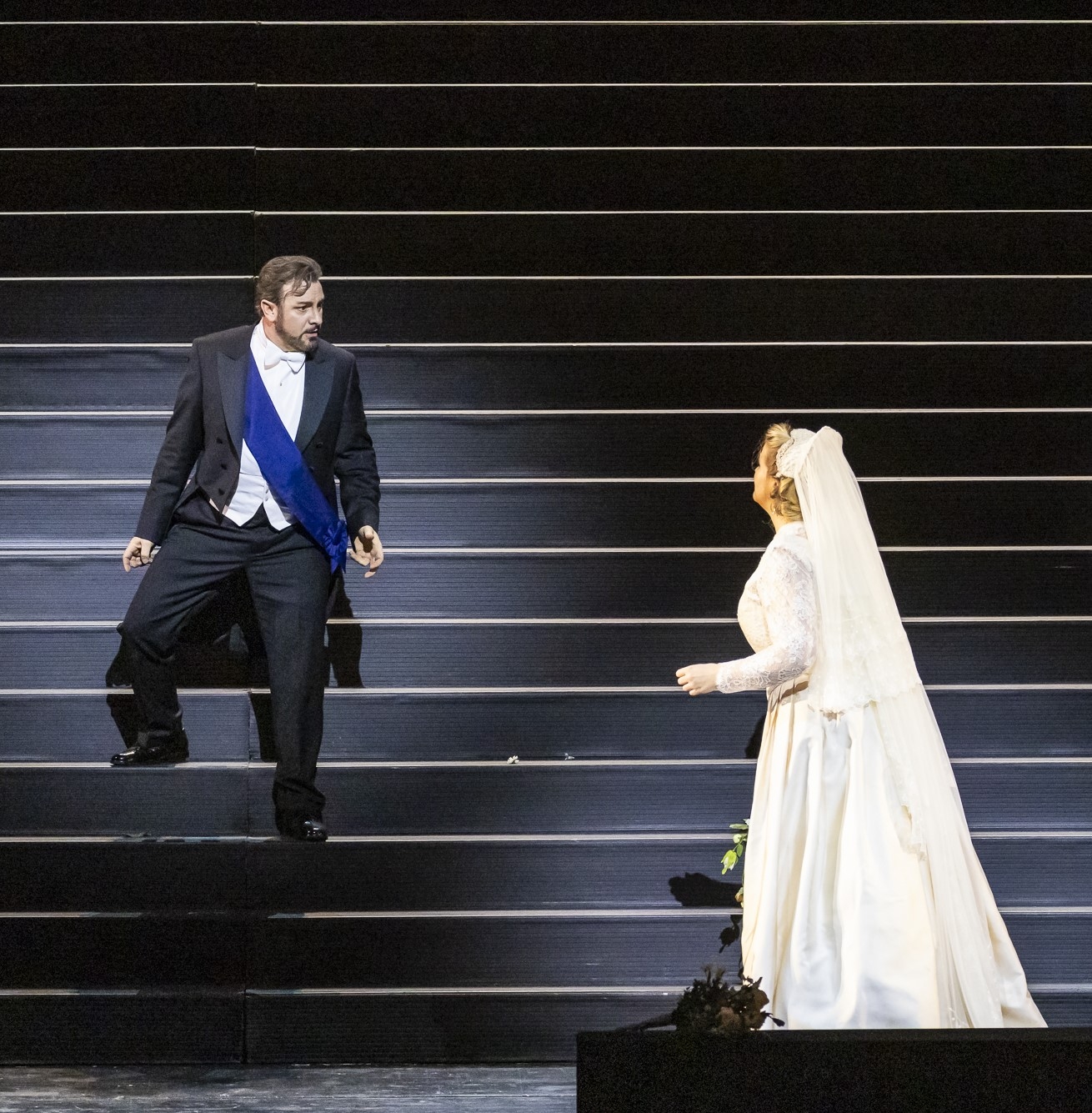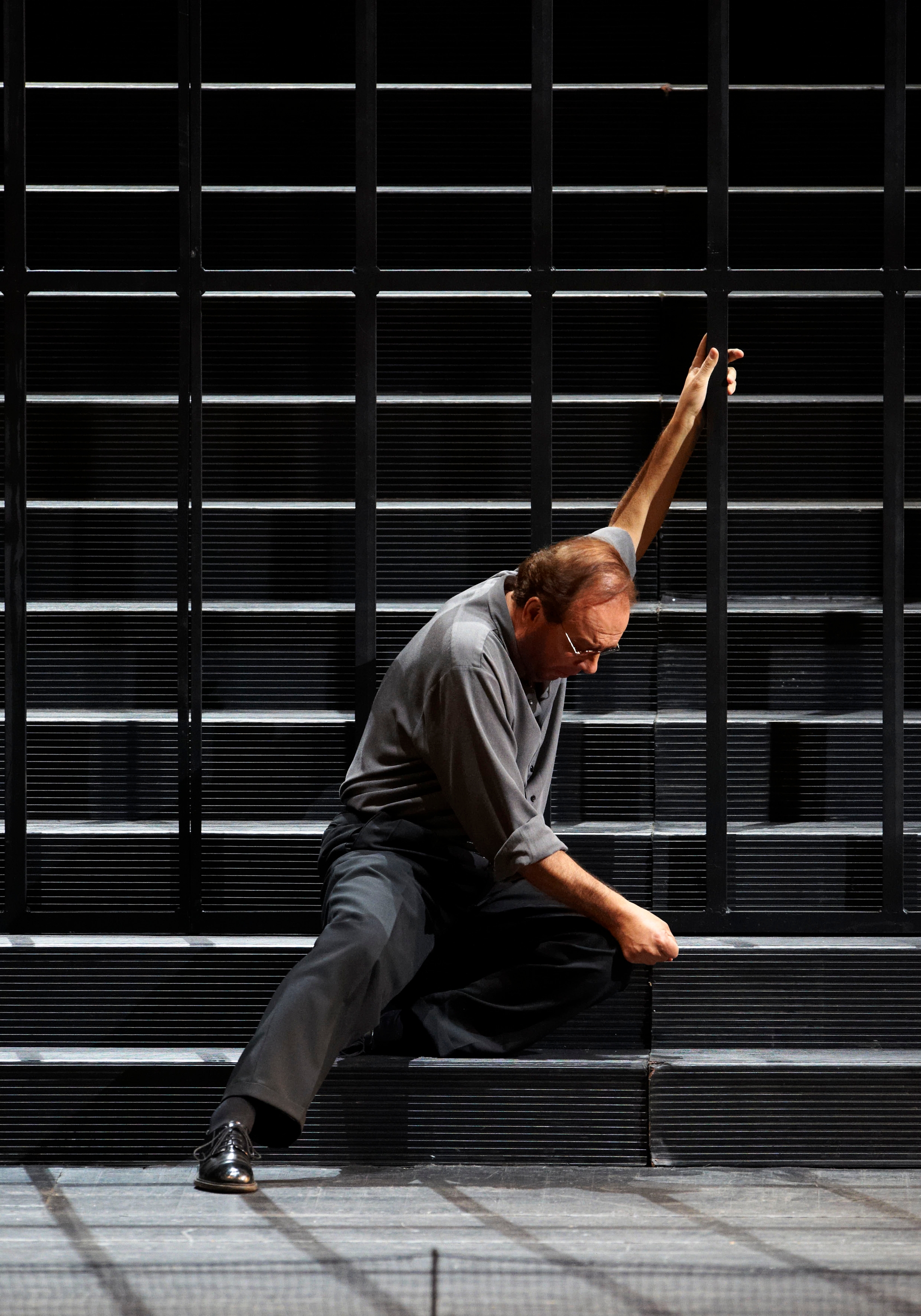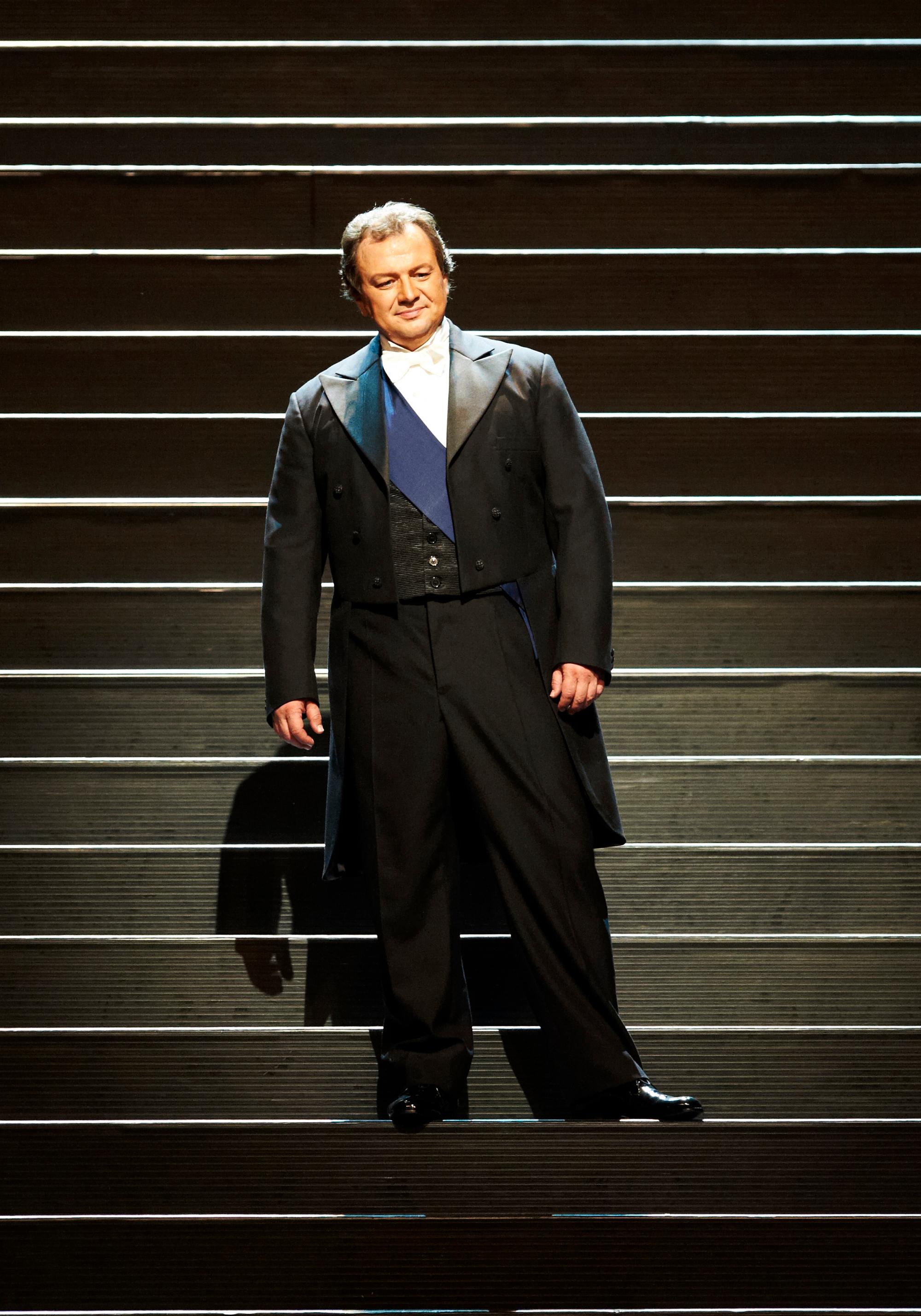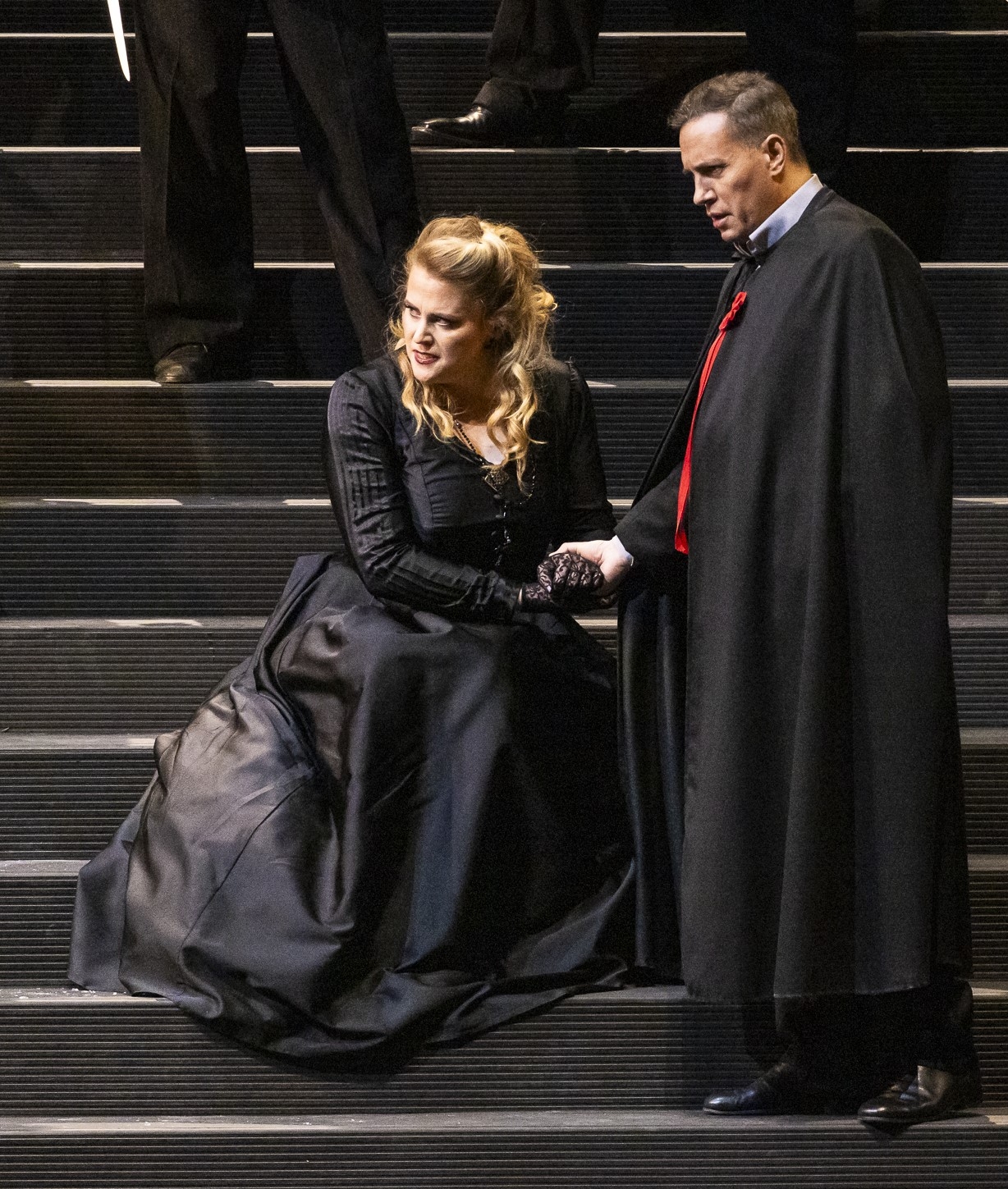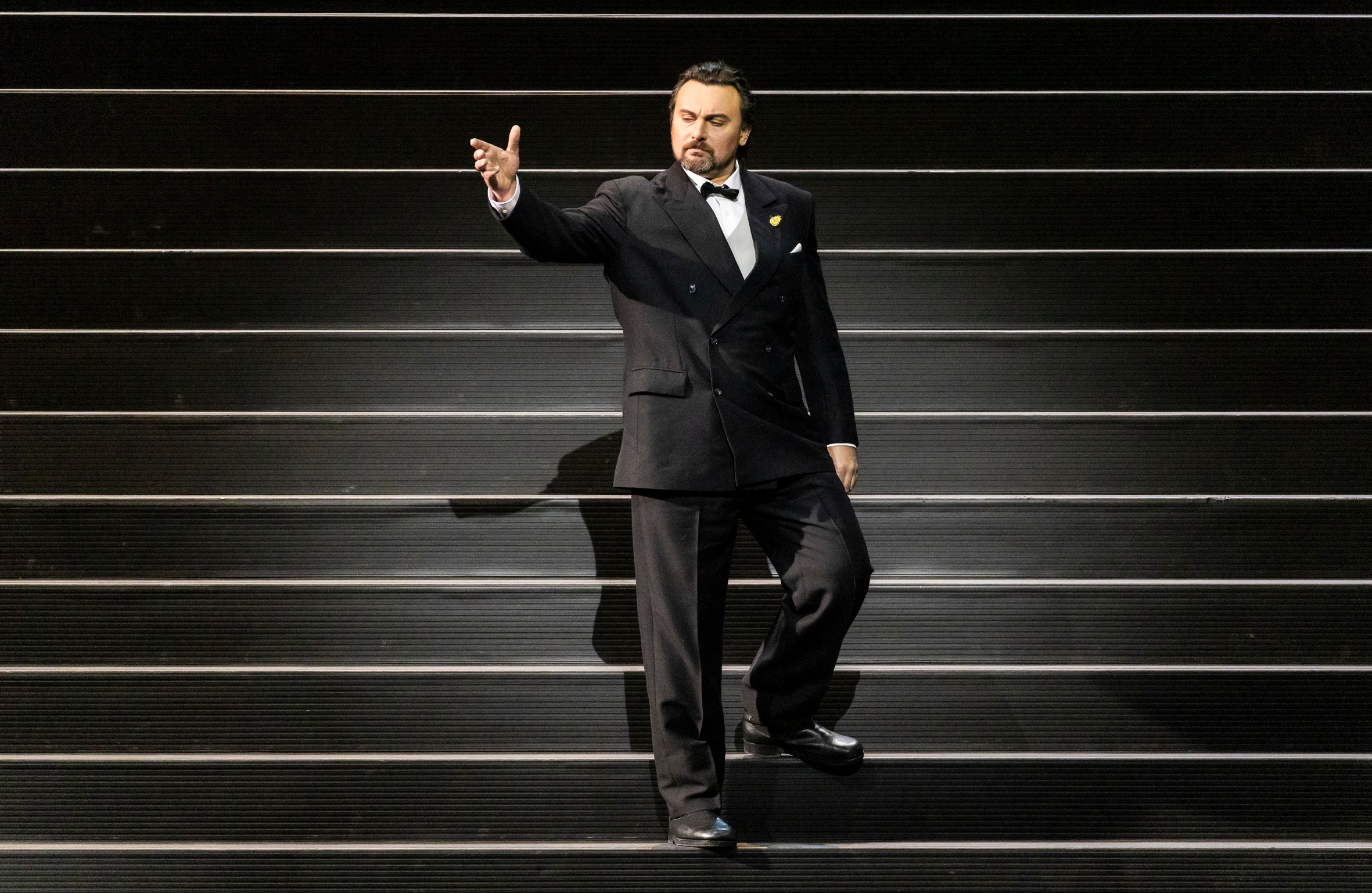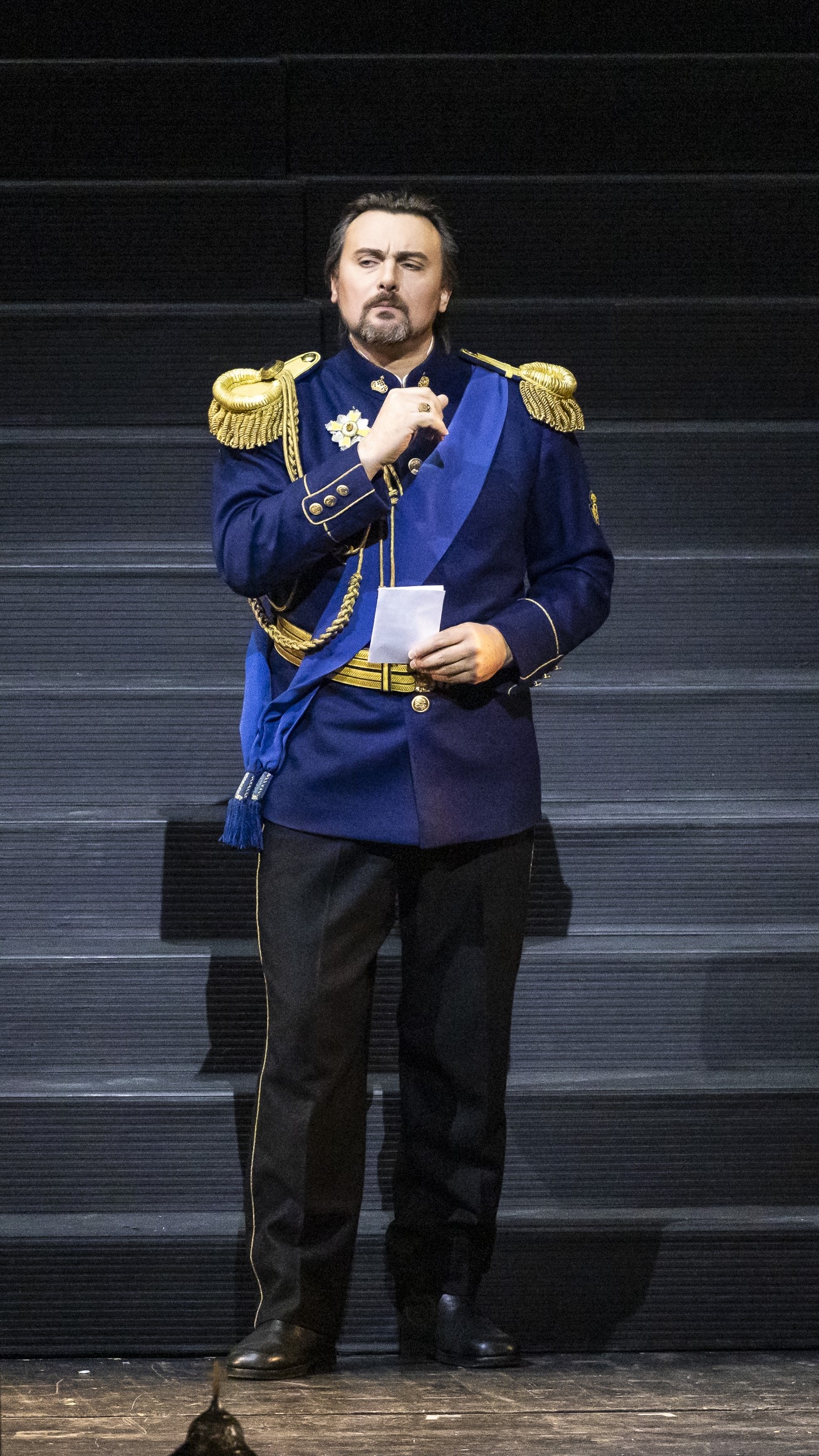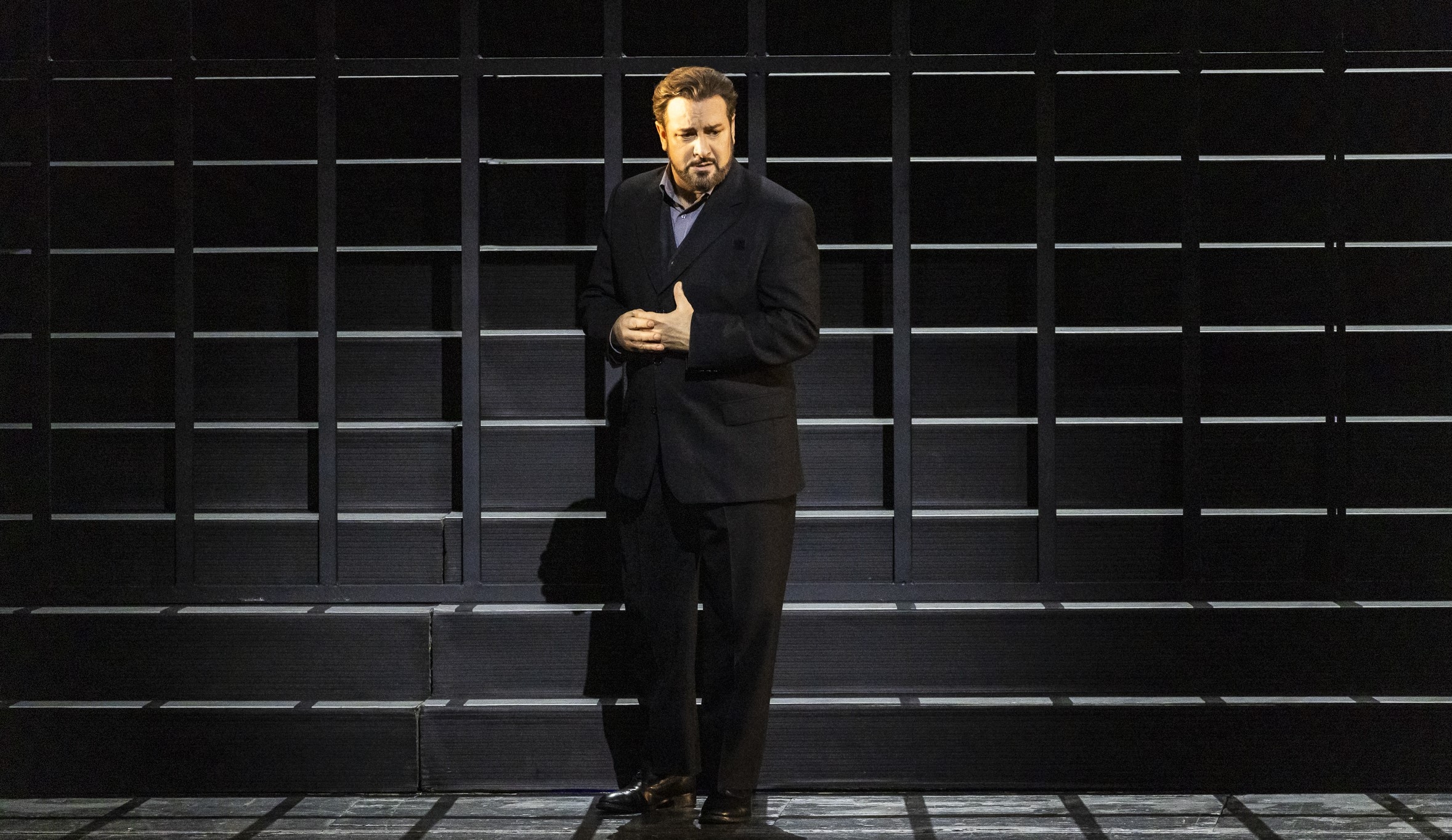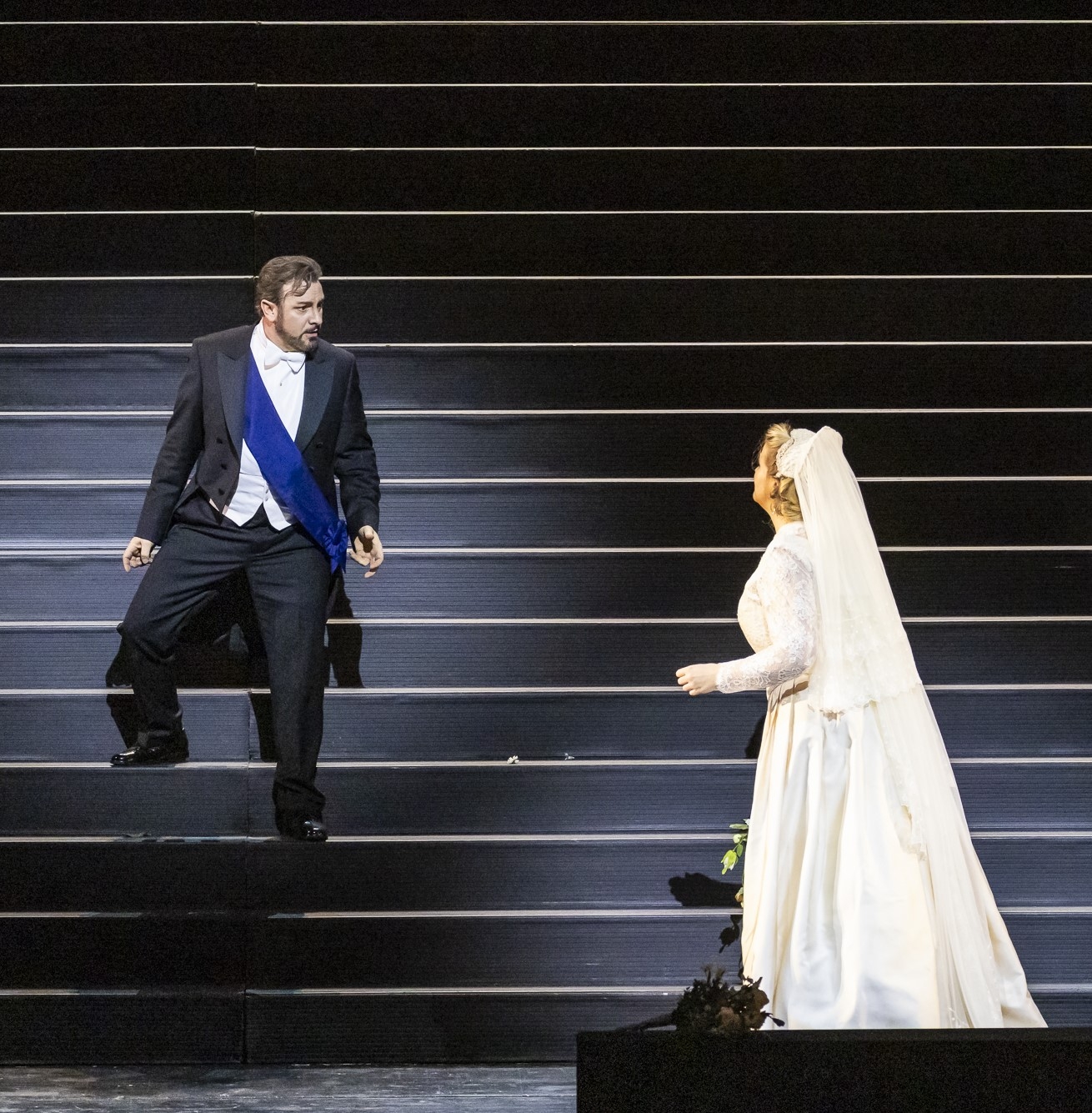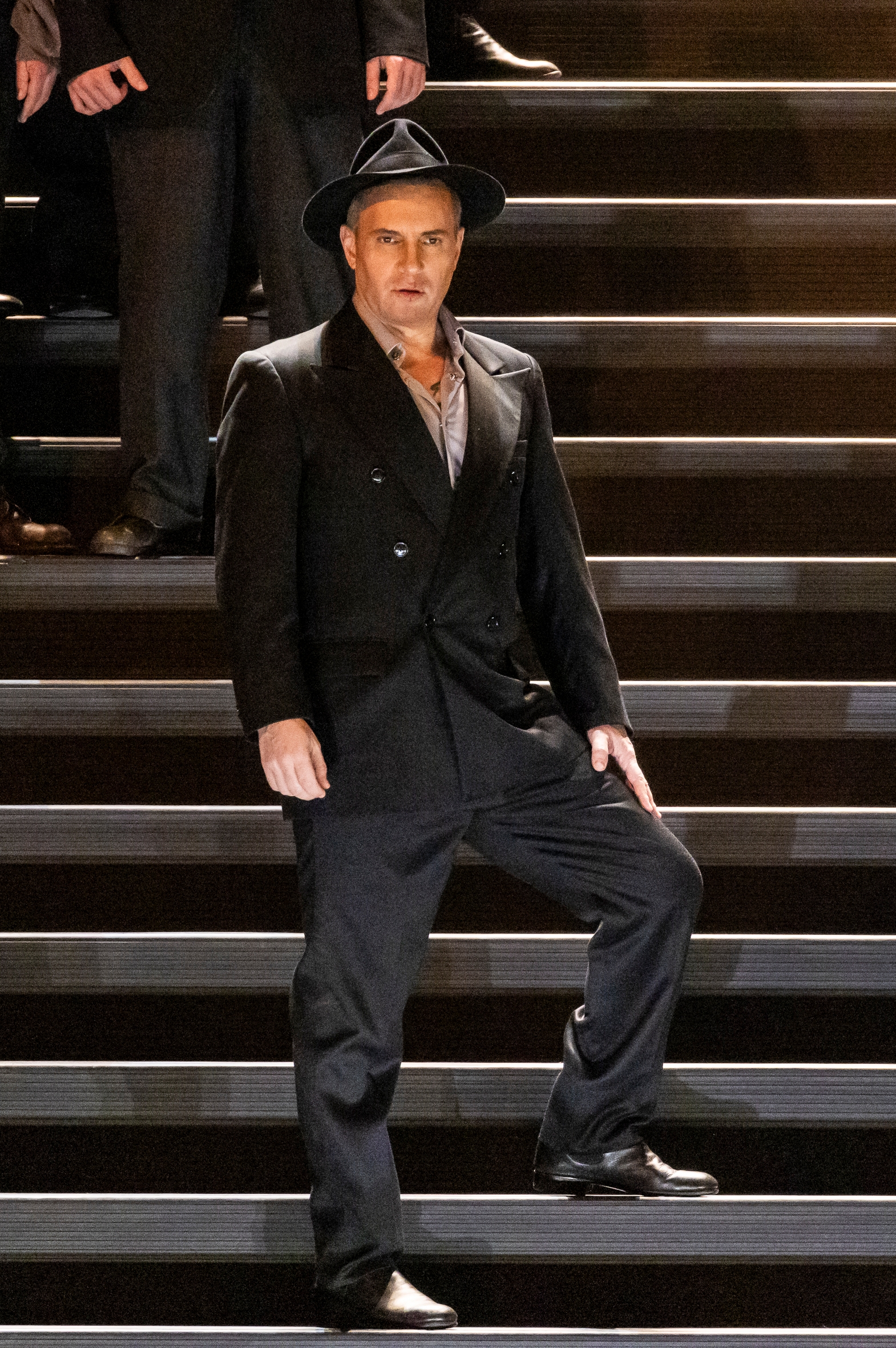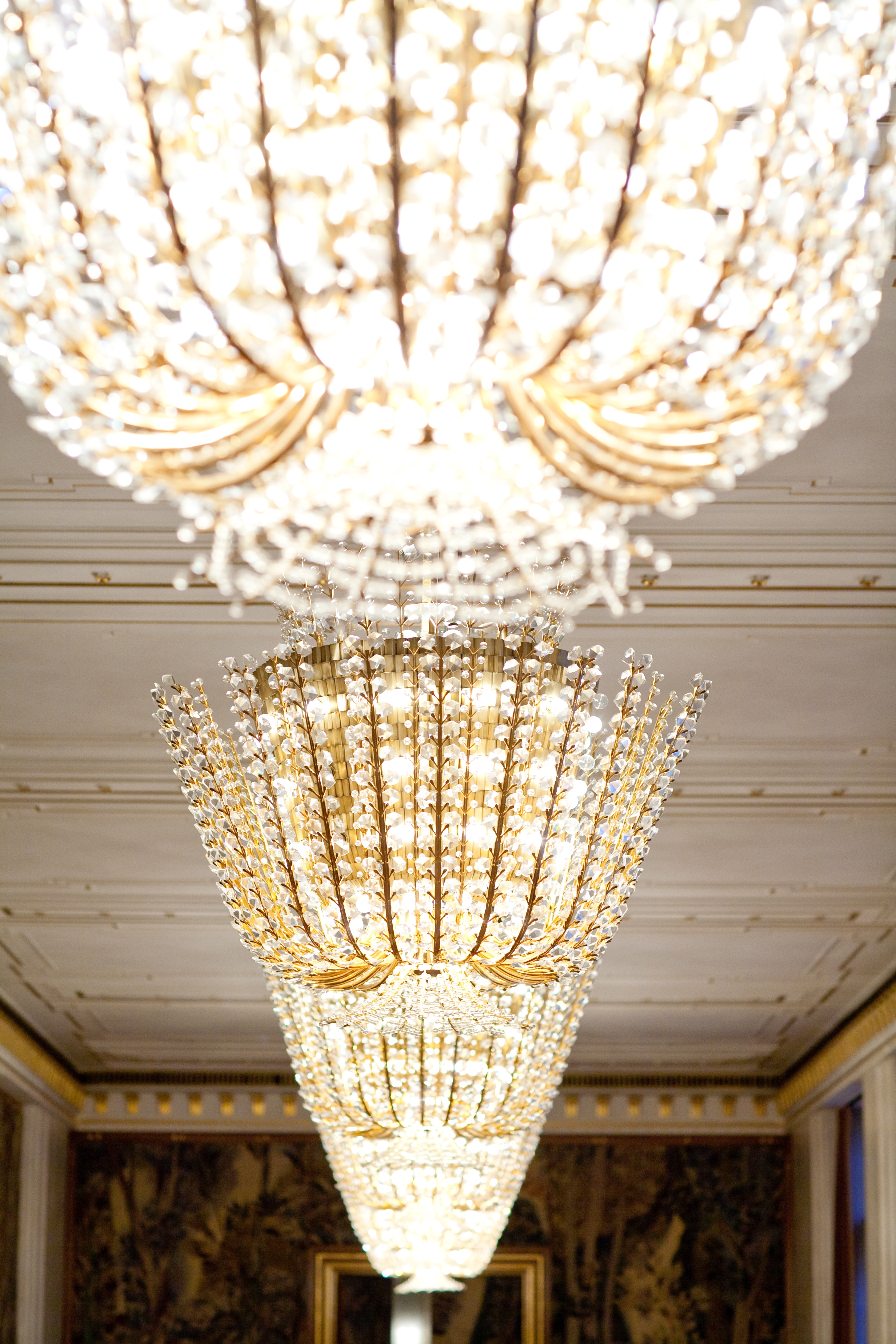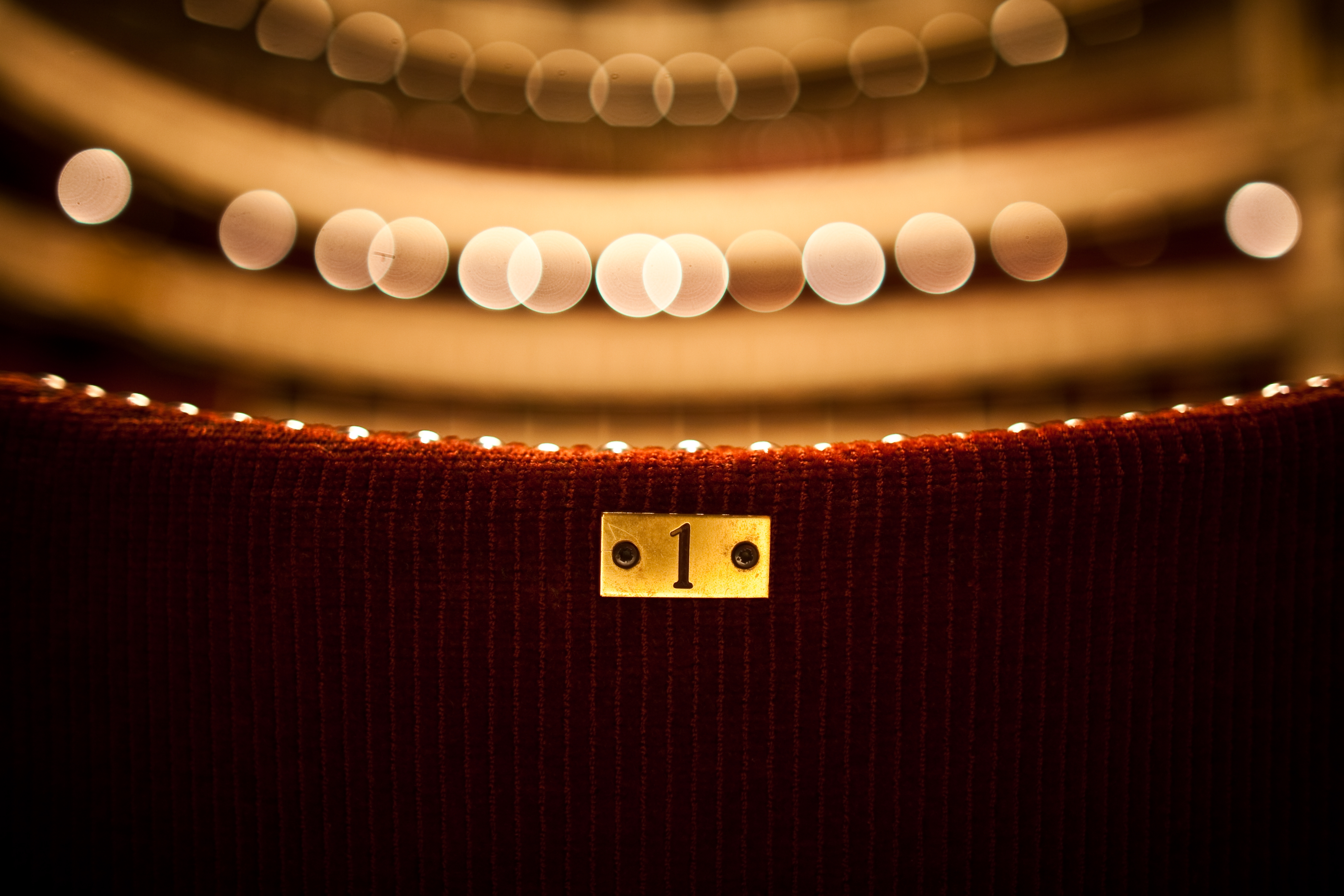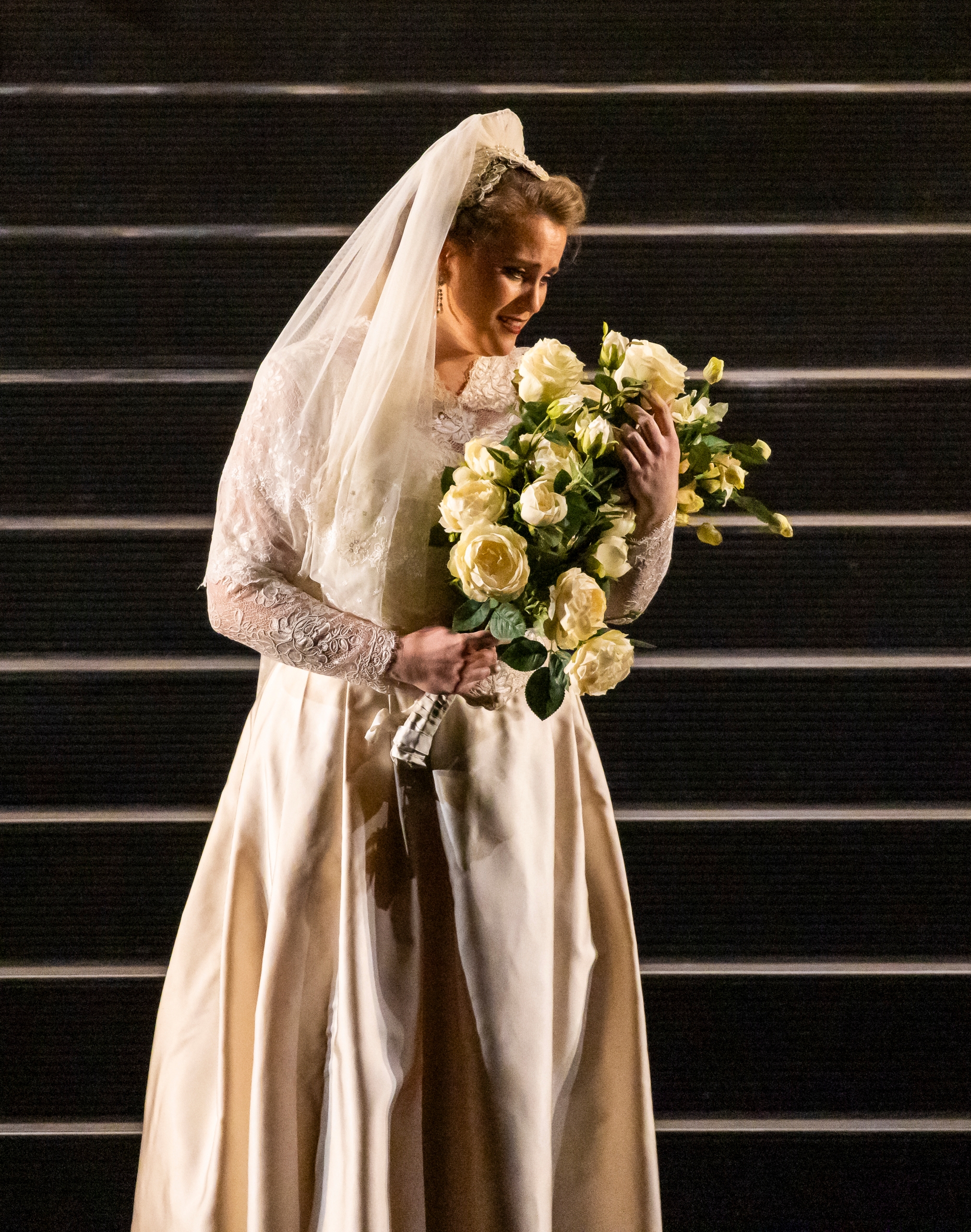
Short Summary
Sicily in the 13th century. The Sicilian population rebels against French rule.
The Sicilian patriot Arrigo and the conflicts arising from his personal plan of revenge against the French governor Montfort are at the center of the story. Amidst political intrigue, love and betrayal, Arrigo and his lover Elena find challenging ways to maintain their loyalty to their country and to each other. With gripping arias and dramatic ensemble scenes, Verdi unfolds a thrilling plot full of suspense and passion that takes the audience into the heart of the Sicilian uprising.
I vespri
siciliani
Storyline
Large square in Palermo
In front of the governor's palace, Tebaldo, Roberto, Béthune, Vaudemont and other French soldiers drink to the good of the fatherland. The Sicilians watch them suspiciously as they dream of liberation from the foreign rule of the Angevins.
Duchess Elena, her servant Ninetta and her bridegroom Danieli appear. Elena is clad in mourning robes and mourns the death of her brother, who has been executed by the French for high treason. Elena's beauty attracts the attention of the soldiers. The drunken Roberto insults her by forcing her to sing a song in public. But Elena's song is a clear call to revolt. When she finishes it, the Sicilians take up arms and are ready to pounce on the French soldiers.
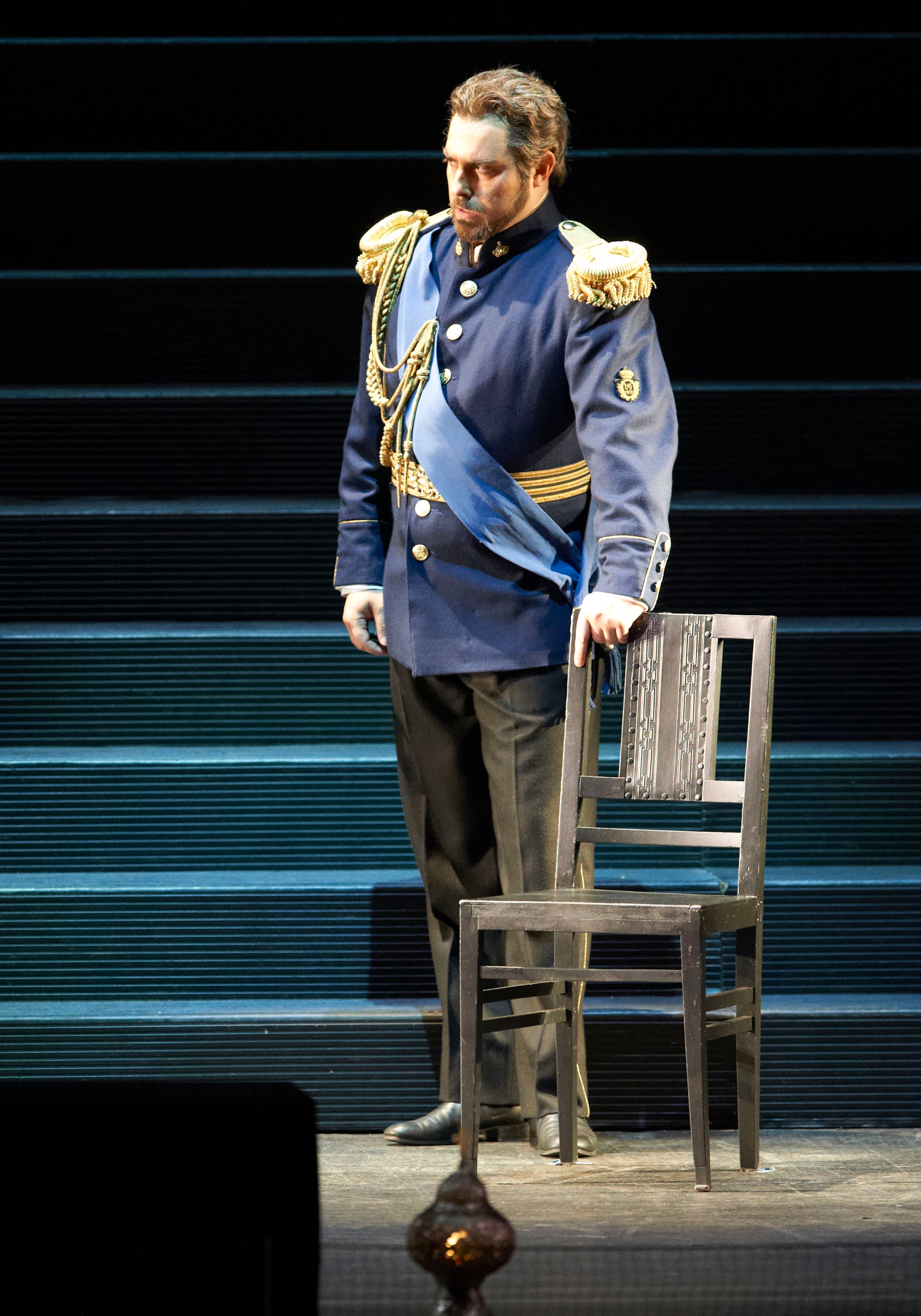
To Elena's disappointment, the appearance of Governor Monforte is enough to put an end to the commotion. The crowd disperses.
Elena is surprised by the arrival of her beloved Arrigo. The young Sicilian had been arrested for treason but acquitted of the charge. Monforte enters and remains alone with Arrigo. The governor admires Arrigo's courage and tries to persuade him to side with the Angevins. He is told to avoid Elena, who would lead him to ruin. Arrigo refuses indignantly.
A valley near Palermo
Giovanni da Procida returns in a boat accompanied by Manfredo after years of exile. Deeply moved, he greets his home town. Elena and Arrigo welcome him. Procida reveals his plans for an uprising. Arrigo immediately promises his help and Procida leaves the scene highly satisfied.
Elena admires Arrigo's heroism. Despite his unclear origins, she wants to marry him if he avenges her brother's death - Arrigo is prepared to do so. Béthune appears with his soldiers and delivers a letter for Arrigo: Monforte invites him to a ball at the governor's palace. When Arrigo refuses, the soldiers drag him away by force.
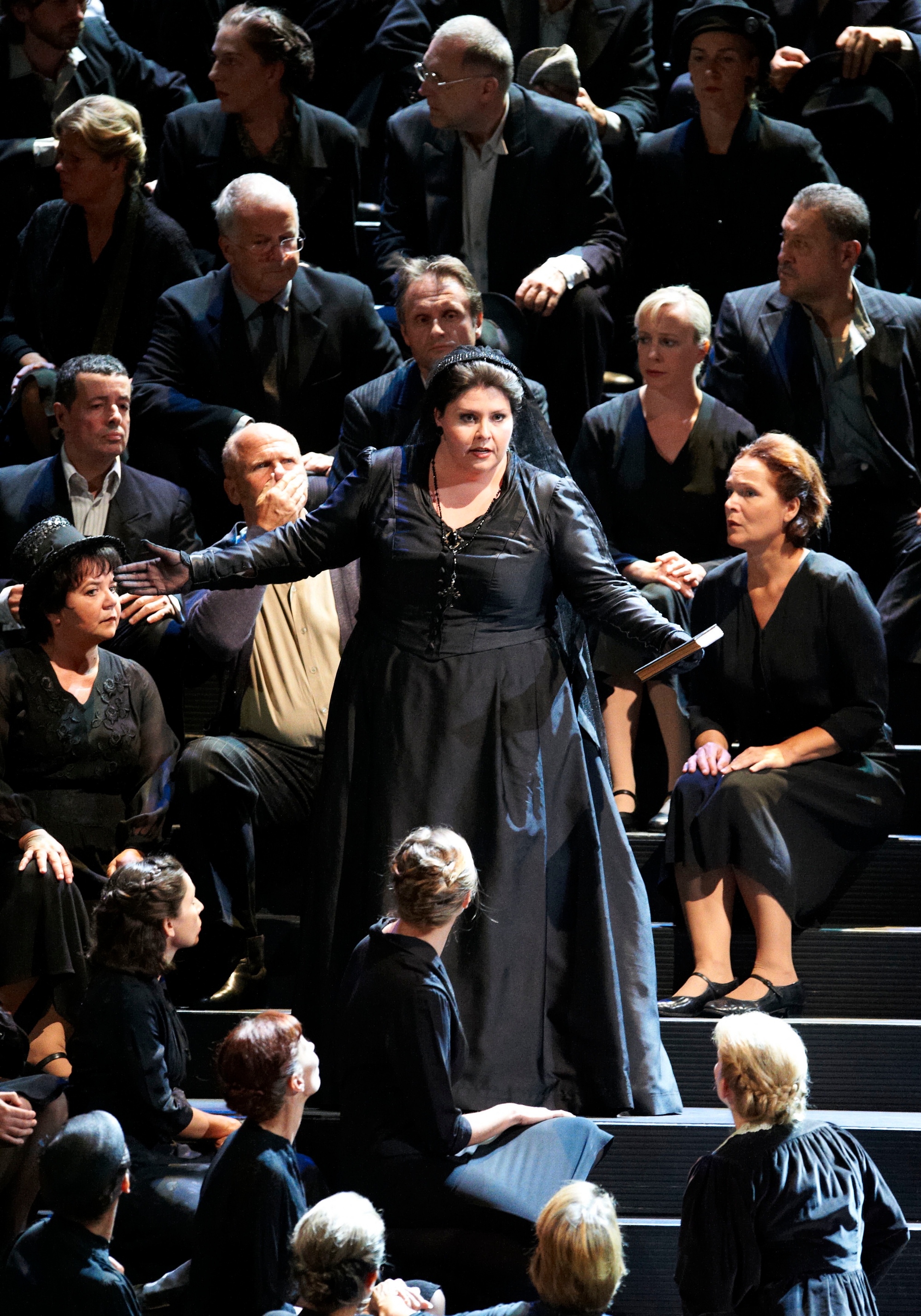
Engagements take place: The girls, including Ninetta, come up the hill and dance a wedding dance with their fiancés. Roberto, Tebaldo and other French soldiers are present; taken with the girls' beauty, they join in the dance. Procida persuades the soldiers to kidnap the girls; this should finally cause the Sicilians to revolt. The French immediately put Procida's idea into practice, but to his and Elena's disappointment, the Sicilians remain indecisive and fearful.
Scene 1 - A room in Monforte's palace
Monforte is alone, plagued by old feelings of guilt. He reads a letter from a woman he once had kidnapped: Written shortly before her death, the letter proves the existence of a son they had together, who was brought up to hate the French occupiers. Full of fatherly feelings, Monforte dreams of taking in his recovered son.
Arrigo is brought before the governor, who gives him an unusually friendly reception and soon reveals to him that he is his father. Monforte shows Arrigo his mother's letter as proof. Arrigo is distraught - when Monforte tries to embrace his son, he pushes him back and hurries away.
Scene 2 - A festively decorated hall
A big party is underway in the governor's palace. Three masks - Elena, Procida and Manfredo - approach Arrigo. The Duchess pins the sign of the Sicilian conspirators on Arrigo's robe. As the three move away, Monforte appears and tries once again to win Arrigo's love - in vain. The son proudly displays the conspirators' sign, which Monforte immediately tears off. Arrigo warns him of a planned assassination.
In prison
Arrigo enters the prison where Elena and the other patriots are awaiting execution.
Elena is brought in, but responds to the tortured Arrigo with harshness and disgust until he confesses to her that he is Monforte's son. Shaken, Elena forgives him and reveals her love to Arrigo. In an exuberance of emotion, the lovers decide to die together.

Everything is ready for the execution, but Procida continues with his rebellious plans: he shows Elena a letter pledging the support of the Spanish troops for the upcoming popular uprising.
Arrigo tells Monforte that he wants to die with the other condemned men. Determined to defend his paternal rights, he assures his son that all the rebels will be pardoned if Arrigo publicly recognizes him as his father. Arrigo initially refuses. The executioners appear and the monks sing the "De profundis". As Elena approaches the execution block, Arrigo cries out in despair "O father, my father!". As promised, Monforte releases the Sicilians and announces the marriage of Elena and Arrigo. Amidst the general joy, Procida continues to plot rebellion.
In Monforte's palace
Near the chapel where Elena and Arrigo's wedding is to take place, happy young girls sing and greet the bride with flowers. The happy duchess hopes for a bright future for her homeland.
But Procida lets her in on his latest plan: The sound of their wedding bells is to be the signal for an uprising. Procida doesn't understand why Elena doesn't take kindly to the plan.

Elena is torn: she neither wants to betray her compatriots nor lose Arrigo. Finally, referring to her dead brother, she rejects the union with Arrigo. Arrigo feels his love betrayed, Procida his honor as a patriot.
Monforte takes no notice of Elena's decision and declares them man and wife. When Procida rings the wedding bells, the desperate Elena calls on Monforte to flee. But the noise of the crowd rushing towards them can already be heard - Arrigo believes they are shouts of joy. Then the rebels break in from all sides and pounce on Monforte and his entourage.
Verdi is not just about a beautiful aria or a thrilling cabaletta. The tension in Verdi lies in the recitative or the scena. These are not just appendages or musical elements that are there to fill the time or prepare a subsequent aria, but the recitative is about a reflection of the characters, about developments.
In the 19th century, an opera commission for Paris was considered particularly prestigious. However, more important for Giuseppe Verdi than the success he achieved with his grand opéra Les Vêpres siciliennes , which premiered in the Seine metropolis, was the confrontation with the stylistic requirements found in Paris, which permanently enriched his own musical language. The Italian version preferred by Verdi will be performed at the Staatsoper - in Herbert Wernicke's production, which depicts the medieval uprising of the Sicilians against the French occupying forces as a disastrous popular drama in which there are no winners.
